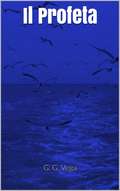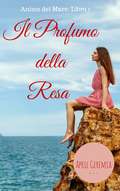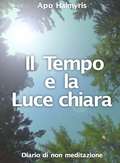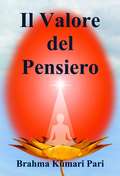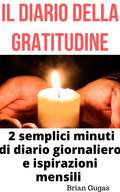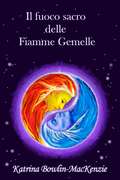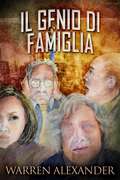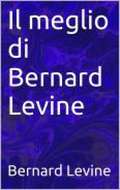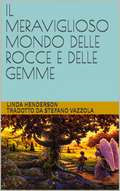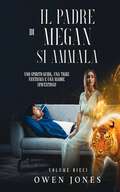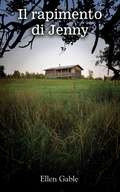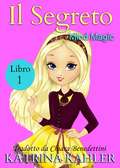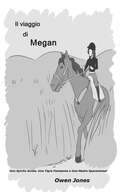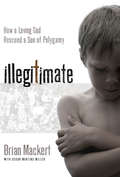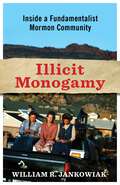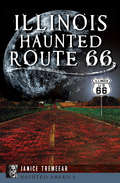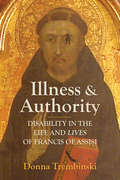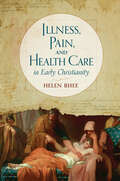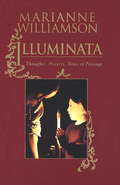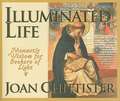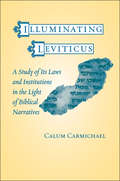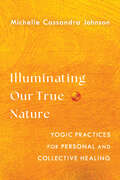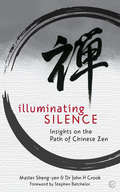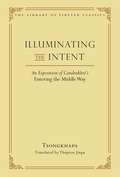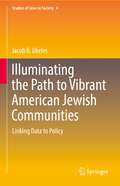- Table View
- List View
Il Profeta
by G. G. Vega Flaminia MiragliaUn profeta è essenzialmente qualcuno scelto da Dio per proclamare la sua volontà, il suo ammonimento o annunciare eventi futuri. Il Profeta Siamo in una generazione, in un tempo, in cui esistono molti timori, specialmente per il nuovo comportamento dei misteriosi elementi naturali. Un tempo in cui il sole sembra bruciarci, in cui la gente mette in dubbio il significato dell'esistenza, e l'esistenza stessa di Dio Eterno. In questo libro, a volte si incontra conforto e un po' di luce sui tempi che viviamo, sebbene questo sia un libro dove spiego la parola Profeta con concetti semplici. Ho tuttavia una speranza, che, più che insegnamento, possiate trovare forti speranze per far fronte ai giorni più oscuri che l'umanità possa affrontare. Un profeta è essenzialmente un messaggero di Dio, i cui messaggi sono generalmente riferiti a eventi futuri. Generalmente castighi o avvertimenti.
Il Profumo della Resa
by Irene Aprile April Geremia“Il viaggio della protagonista è difficile e intenso. Raccomando questo libro ai lettori sensibili al potere delle parole. Solo un avvertimento… una volta iniziato a leggere questo libro potreste non volerlo più posare finché non avrete finito di leggere l’ultima pagina. È davvero molto appassionante.” Marlene Bertrand. "Tutti abbiamo affrontato sfide nella nostra vita e qualche volta sembrano sopraffarci. Questo può far sì che mettiamo in dubbio tutto attorno a noi, inclusa la nostra fede in Dio. Quando questo succede è difficile capire che cosa fare o a chi rivolgersi. April Geremia affronta queste questioni e molto altro nel suo bellissimo libro. È stato interessante e di grande ispirazione. I personaggi ti fanno pensare alla tua vita e a cosa faresti se fossi in lotta con la fede. È scritto meravigliosamente ed è così descrittivo che non volevo che finisse. Mi è sembrato molto reale ma mi ha dato anche una sensazione di pace alla sua conclusione. Trovo che sia un romanzo cristiano molto ben scritto, con personaggi interessanti. Posso solo dire che mi ha fatto pensare a me stessa e alla mia vita in un modo nuovo.” Jean, Amazon. “April Geremia ha intessuto una bellissima storia con dettagli descrittivi che attirano il lettore più a fondo con ogni riga. April Geremia crea immagini mentali che permettono al lettore di vedere e sentire le emozioni dei suoi personaggi.” Reader’s Favorite Una vita tragica. La ricerca della fede. Un mistero lungo una vita. La vita di Gabriella è stata piena di tragedie, inclusa la scomparsa dei suoi genitori una notte. Perché l'hanno lasciata sola in tenera età? Dopo la morte di suo marito, lei e suo figlio si trasferiscono nella sua casa d’infanzia—una casa vicina a una scogliera in un villaggio che il tempo sembra aver dimenticato. Mentre scopre pezzo dopo pezzo il mistero della scomparsa dei suoi genitori, arriverà a credere nel Dio che vede con sospett
Il Tempo e la Luce chiara. Diario di non meditazione.
by Apo Halmyris Francesca DeganiLe cose devono essere nel modo in cui le troviamo. Ma i cercatori sono invitati a viaggiare nello spazio-tempo. La nostra vita è limitata, ma la conoscenza no. Un libro sapienziale. Un libro che è come una lanterna sulla spalla.
Il Valore del Pensiero
by Brahma Kumari PariQuesto libro "Il Valore del Pensiero" fornisce una spiegazione chiara, concisa e significativa sui Murli, ovvero sui messaggi enunciati dalla Divinità (Anima Suprema) nel Brahma Kumaris. Questo libro in linea generale delinea una traccia su come tu (anima) dovresti scuotere la conoscenza dell'Anima Suprema e assorbirla per farla tua. Questo apporterà un cambiamento positivo nella tua vita poiché arriva a svelare i profondi misteri della vita e definisce un metodo per adottare un carattere divino; sarai in grado di usare virtù e valori divini mentre affronti qualsiasi tipo di situazione nella tua vita. I contenuti di questo libro ti aiuteranno a gettare i semi nella tua mente che ti porteranno poi in uno stadio angelico puro. Attraverso l'utilizzo del processo di pensiero suggerito in questo libro, tu (anima) diventi come un diamante puro e splendente, tempestato d’oro per metterne in mostra brillantezza e valore. Questo libro "Il Valore del Pensiero" è stato modificato e sviluppato ulteriormente dagli altri membri della "Shiv Baba Service Initiative", una squadra interamente dedita al servizio divino. Il BK che gestisce il team "Shiv Baba Service Initiative", il motore di ricerca Google BK e il sito web ufficiale di Brahma Kumaris avevano chiesto a Brahma Kumari Pari di scrivere questo libro poiché la Divinità stessa (Shiv Baba) aveva ordinato che questo libro venisse scritto. Così Brahma Kumari Pari ha accettato di occuparsene. Il presente è il momento più prezioso dell'intero ciclo del dramma mondiale. Possa questo libro guidarti verso lo scopo più alto e reale della vita umana.
Il diario della gratitudine: 2 semplici minuti di diario giornaliero e ispirazioni mensili
by Brian GugasCome inizia un diario della gratitudine? La tua famiglia siede attorno al tavolo del Ringraziamento, ci sono dei motivi per cui siete grati? O la tua è una famiglia che pensa che sia tutto dovuto? È bello avere un giorno speciale dedicato ai ringraziamenti, ma un solo giorno di novembre non dovrebbe assolutamente essere l’unico elemento di gratitudine. Dovremmo passare una parte di ogni singolo giorno a ringraziare per le benedizioni della famiglia, della salute, degli amici, del nostro lavoro e della presenza di Dio. Il diario contiene: Riflessioni mensili Suggerimenti settimanali Versetti della Bibbia sulla gratitudine Ogni mese un ringraziamento a Dio Questo diario ti aiuterà ad abituarti a dire Grazie. Trascorrere alcuni minuti al giorno pensando alle ragioni per cui essere grato, ti farà vedere la vita in modo più positivo, ti avvicinerà a Dio e renderà il mondo intorno a te un posto migliore dove vivere.
Il fuoco sacro delle Fiamme Gemelle
by Katrina Bowlin-Mackenzie Giulia De VivoLa nostra fiamma gemella, la nostra “metà” nel senso più perfetto e sublime del termine: chi non la cerca? Leggi questo libro e potrai avere accesso al mondo privato di svariate coppie che hanno trovato l’uno nell’altra la propria preziosa metà. Leggerai anche del percorso e dell’esperienza personale tramite cui mio marito e io ci siamo ritrovati, pur vivendo ai capi opposti della terra, contro ogni logica previsione di poterci unire e diventare marito e moglie. Questo libro presenta, inoltre, otto diverse storie di altre coppie di fiamme gemelle che sono riuscite a incontrarsi e coronare il proprio sogno: queste coppie hanno generosamente messo a nudo la propria anima per poter condividere la loro storia e offrirti i loro consigli.
Il genio di famiglia
by Warren AlexanderStancatasi di essere la matriarca della famiglia ebraica meno affermata d'America, una nonna inizia a consultare testi mistici medievali. Determinata a fare del suo prossimo nipote il genio che cambierà la loro sorte, non sa che le sue preoccupazioni stanno solo per iniziare. Convinta che nessuno nella sua famiglia sia abbastanza intelligente da educare un genio per conto proprio, decide che il bambino passerà di casa in casa per acquisire il loro sapere collettivo. Commedia picaresca ambientata nella Brooklyn degli anni '50, Il genio di famiglia è un'avventura divertente, piena di eventi inaspettati e personaggi radicali e stravaganti. In fin dei conti, questa storia familiare suscita una domanda: quanto può essere grande l'errore di una nonna?
Il meglio di Bernard Levine
by Simona Trapani Bernard LevineLe parole di Bernard Levine hanno ispirato, incoraggiato e portato gioia a migliaia di lettori affezionati. L'avete richiesto, l'avete votato, ed ecco per la prima volta una raccolta dei migliori classici di Bernard Levine.
Il meravigioso mondo delle rocce e delle gemme
by Linda HendersonJonas va a fare una passeggiata e conosce un amico interessante più vecchio di lui. Il suo nuovo amico gli racconta di tre tipi di rocce che trova lungo il cammino. Poi parla delle gemme che la Bibbia afferma che si troveranno nella città celeste di Nuova Gerusalemme. Questa è una guida per principianti per chi ama la Scienza e vuole saperne di più sulle rocce e sulle gemme.
Il padre di Megan si ammala: Una guida spirituale, una tigre fantasma e una mamma spaventosa! (La serie della sensitiva Megan #10)
by Owen JonesIl padre di Megan si ammala Una guida spirituale, una tigre fantasma e una mamma spaventosa! Megan è una giovane adolescente di tredici anni che si rende conto di avere poteri psichici che nessun altro possiede. In un primo momento aveva cercato di parlarne con sua madre, ma, viste le conseguenze disastrose, aveva imparato a tenere la cosa per sé. Tuttavia, ci sono alcune persone che si offrono di aiutarla e un animale che si mostra particolarmente amichevole nei suoi confronti, anche se non si tratta di esseri ‘vivi’ nel tradizionale senso della parola, ma di esseri passati a miglior vita. Megan ha tre amici di questo tipo: Wacinhinsha, la sua guida spirituale (che era stato Sioux nella sua ultima vita terrena), il nonno materno, Nonnino, e un’enorme tigre siberiana di nome Grrr. Wacinhinsha è un grande esperto nell’ambito dello spirituale, dello psichico e del paranormale; suo nonno è una ‘persona morta’ in erba e Grrr, come c’è da aspettarsi, parla solo il tigrese (che naturalmente, per gli esseri umani, è per lo più incomprensibile). Nel racconto intitolato ‘Il padre di Megan si ammala’, Megan è preoccupata per la salute di suo padre perché non lo aveva mai visto ammalato prima, per cui decide di provare ad usare i suoi poteri psichici per curarlo. Alla fine, per trovare modi per aiutarlo a guarire, usa una combinazione dei suoi doni e di ricerche su internet e Wacinhinsha le insegna qualcosa sulla medicina e sulle sue applicazioni, soprattutto dal punto di vista spiritualista.
Il rapimento di Jenny
by Ellen GableJenny Callahan è una giovane donna, mamma di cinque figli e moglie appagata. Dopo tre tragici aborti sta per realizzare, nonostante la contrarietà dei familiari e i superficiali giudizi degli estranei, il desiderio di avere tra le braccia il suo sesto figlio. Dopo un’ennesima gravidanza difficile, infatti, mancano ormai poche settimane al cesareo che le permetterà di stringere tra le braccia il suo nuovo bambino, accanto al marito Tom. Denise Kramer è una donna senza interessi che vive nel passato con un solo obiettivo per il futuro: avere un figlio. Non la fermeranno il suo essere sterile, la fine del suo matrimonio né vari tentativi di inseminazione artificiale o tantomeno una richiesta di adozione respinta. Denise avrà il suo bambino, a tutti i costi. Cosa possono avere in comune queste due donne? Può il desiderio di maternità portare a organizzare un rapimento? Due donne, due destini che si uniscono tragicamente, intrecciandosi per il resto delle loro vite.
Il segreto Libro Uno: Mind Magic
by Katrina Kahler Chiara BenedettiniSe sei in cerca di un buon libro per ragazze, sicuramente amerai "Il segeto, Libro 1". Quando la dodicenne Tess si trasferisce in un nuovo quartiere, prova a fare amicizia con Sam, un ragazzo della sua stessa età che vive nella casa accanto alla sua. Tess non sa che Sam ha un potere speciale, che deve tenere nascosto a tutti i costi. No, non può leggere nel pensiero ma è capace di cose che stenta a controllare. Gli altri ragazzi pensano che Sam sia strano e tendono ad evitarlo. Ma l'arrivo di Tess cambia tutto. Sam non è l'unico a provare interesse per Tess, tuttavia. Quando anche il ragazzo più popolare della scuola, Jake Collins, inizia a interessarsi a Tess, Sam capisce di non avere nessuna speranza. In seguito, Sam sarà costretto a dare una bella lezione a Jake, i cui atti di bullismo si stavano facendo intollerabili. Ma cosa succederà quando Sam si spingerà troppo oltre? E Tess, si renderà conto di cosa è capace Sam? Se ti piacciono i libri che parlano di ragazzi con poteri speciali e ti è piaciuta la serie "Emmie la telepatica", allora amerai anche questa serie di romanzi. Una nuova eccitante storia, ricca di drammi, suspance, amicizia, cotte adolescenziali e molto altro ancora. Un libro avvicente che non riuscirai a smettere di leggere.
Il viaggio di Megan: Uno Spirito Guida, Una Tigre Fantasma e Una Madre Spaventosa! (La serie Megan #19)
by Owen JonesIl viaggio di Megan Uno Spirito Guida, Una Tigre Fantasma e Una Madre Spaventosa! Megan è una tredicenne con poteri soprannaturali. Non conosce nessuno che sappia qualcosa circa il soprannaturale. Infatti, sua madre è totalmente contro il soprannaturale, così come sua madre prima di lei. Le uniche persone che sembrano disposte ad aiutarla sono morte, non che questo faccia alcuna differenza per Megan. Lei accoglie il loro aiuto a braccia aperte. In "Il viaggio di Megan", Jane, la sua migliore amica, invita Megan a una lezione di equitazione gratuita presso una fattoria locale. Megan è desiderosa di fare questa nuova esperienza e di incontrare gli animali, ma il tutto si rivela diverso dacome lei si aspettava. Il suo Spirito Guida, Wacinhinsha, cercherà di dar un senso all'esperienza che Megan e Jane hanno fatto durante una seduta di meditazione.
Illegitimate
by Susan Martins Miller Brian J. MackertThe events at a Fundamentalist Mormon compound in Texas ignited a national dialogue on religious sects. Formed as a splinter group of the LDS church, these secretive cults exist in an insular world far removed from mainstream American culture. A world of abuse and twisted theology that seems too bizarre to be true.Yet for Brian J. Mackert, life inside this sect was all too real. As a son in a family of one father, four wives, and 31 children, Brian experienced firsthand the devastating realities of polygamous cults. Now Brian tells his remarkable story of tragedy and healing. Illegitimate takes readers behind the shocking headlines and inside the walls of this controversial sect. Brian reveals a world of loving mothers and abusive fathers, devoted children and sibling rivalry, fake religion and the truth eventually found in Christ--outside the walls of the FLDS. Ultimately, Illegitimate demonstrates the incredible love of God, and His ability to bring light into the darkest of places.
Illicit Monogamy: Inside a Fundamentalist Mormon Community
by William JankowiakAngel Park is a Mormon fundamentalist polygamous community where plural marriages between one man and multiple women are common. In contrast to mainstream America’s idealization of the nuclear family and romantic love, its residents esteem notions of harmonious familial love, a spiritual bond that unites all family members. In their view, polygyny is not only righteous and sanctified—it is also conducive to communal life and social stability.Based on many years of in-depth ethnographic research in Angel Park, this book explores daily life in a polygamous community. William R. Jankowiak considers the plural family from the points of view of husbands, wives, and children, giving a balanced account of its complications and conflicts. He finds that people in polygynous marriages, especially cowives, experience an ongoing struggle to balance the longing for romantic intimacy with the obligation to support the larger family. They feel tension between deeply held religious convictions and the desire for emotional exclusivity, which can threaten the stability and harmony of the polygamous family. Men and women often form exclusive romantic pairs within plural marriages, which are tolerated if not openly acknowledged, showing the limits of the community’s beliefs. Jankowiak also challenges stereotypes of polygamous families as bastions of patriarchal power, showing the weight that interpersonal and social expectations place on men.Offering an unparalleled look at the complexity of a polygamous religious community, Illicit Monogamy also helps us reconsider relationships, love, and family dynamics across cultures and settings.
Illinois Haunted Route 66 (Haunted America)
by Janice TremeearThere&’s no detour from terror on this creepy thrill ride down part of America&’s historic highway—from the author of Haunted Ozarks. Route 66 is no longer the main thoroughfare between Chicago and St. Louis, but if local lore is to be believed, ghostly traffic along the Mother Road continues unabated. Janice Tremeear chases down accounts of a man executed for witchcraft, the demon baby of Hull House, and the secrets of H. H. Holmes&’s &“Murder Castle.&” Native American legends place the piasa bird in the skies above the highway&’s southern stretch with the same insistence that characterize contemporary UFO sightings in the North. In between, spirits such as Resurrection Mary join the throng of hapless souls wandering the roadside of the Prairie State&’s most famous byway.
Illness and Authority: Disability in the Life and Lives of Francis of Assisi
by Donna TrembinskiIllness and Authority examines the lived experience and early stories about St. Francis of Assisi through the lens of disability studies. This new approach re-centres Francis’s illnesses and infirmities and highlights how they became barriers to wielding traditional modes of masculine authority within both the Franciscan Order he founded and the church hierarchy. So concerned were members of the Franciscan leadership that the future saint was compelled to seek out medical treatment and spent the last two years of his life in the nearly constant care of doctors. Unlike other studies of Francis’s ailments, Illness and Authority focuses on the impact of his illnesses on his autonomy and secular power, rather than his spiritual authority. From downplaying the comfort Francis received from music to disappearing doctors in the narratives of his life, early biographers worked to minimize the realities of his infirmities. When they could not do so, they turned the saint’s experiences into teachable moments that demonstrated his saintly and steadfast devotion and his trust in God. Illness and Authority explores the struggles that early authors of Francis’s vitae experienced as they tried to make sense of a saint whose life did not fit the traditional rhythms of a founder-saint.
Illness, Pain, and Health Care in Early Christianity
by Helen RheeWhat did pain and illness mean to early Christians? And how did their approaches to health care compare to those of the ancient Greco-Roman world? In this wide-ranging interdisciplinary study, Helen Rhee examines the ways early Christians viewed illness, pain, and health care—and how they were influenced both by their own tradition and by the milieu of the larger ancient world. Throughout the book, Rhee places the history of medicine, Greco-Roman literature, and ancient philosophy in fruitful dialogue with early Christian literature and theology to show the nuanced ways Christians understood, appropriated, and reformulated Roman and Byzantine conceptions of health and wholeness from the second through the sixth centuries CE. Utilizing the contemporary field of medical anthropology, Rhee engages illness, pain, and health care as sociocultural matters. Through this and other methodologies, she explores the theological meanings attributed to illness and pain; the religious status of those suffering from these and other afflictions; and the methods, systems, and rituals that Christian individuals, churches, and monasteries devised to care for those who suffered. Rhee&’s findings ultimately provide an illuminating glimpse into an instrumental way that Christians began shaping a distinct identity—both as part of and apart from their Greco-Roman world.
Illuminata: Thoughts, Prayers, Rites of Passage
by Marianne WilliamsonMarianne Williamson's bestselling A Return to Love ended with a prayer in which she asked God to help us "find our way home, from the pain to peace, from fear to love, from hell to Heaven." Now, in this stunning new collection of thoughts, prayers, and rites of passage, Marianne Williamson returns to prayer. Prayer is practical, Williamson tells us. "To look to God is to look to the realm of consciousness that can deliver us from the pain of living." Illuminata brings prayer into our daily lives, with prayers on topics from releasing anger to finding forgiveness, from finding great love to achieving intimacy. There are prayers for couples, for parents, and for children; prayers to mend broken relationships and prayers to overcome obsessive and compulsive love. There are prayers to heal the soul, prayers to heal the body, and prayers for work and creativity. Williamson also gives us prayers for the healing of America, including two prayers that have had powerful effects on audiences at her lectures: a prayer of amends on behalf of European Americans to African-Americans and one to Native Americans. How, Williamson asks, can we expect anyone to forgive when we have made no formal apology? Another section includes rites of passage, ceremonies of light for the signal events in our lives: blessing of the newborn, coming of age, marriage, and death. There is also a ceremony of the elder, for moving into midlife, and a ceremony of divorce, in which a gentle transition is provided for both the couple and their children. "Read my prayers or someone else's," Williamson says. "By all means, create your own." Illuminata is a way to bring prayer into practical use, creating a sweeter, more abundant life for yourself and the people you care for. "No conventional therapy," she says, "can release us from a deep and abiding psychic pain. Through prayer we find what we cannot find elsewhere: a peace that is not of this world."
Illuminated Life: Monastic Wisdom for Seekers of Light
by Joan ChittisterIn this little dictionary of monastic wisdom, Joan Chittister offers an A-Z of how to 'be in the world, but not of the world.' In her inimitable style, she eschews the quick fix in favor of a solid spiritual direction that has stood the test of time. Each chapter is devoted to a letter that illuminates a spiritual quality to be cultivated, from Awareness to Zeal, Community to Interiority, Enlightenment to Yearning--and many more. Every illumination opens with a story from the desert mystics, then segues into a practical application of that value to our tumultuous times.
Illuminating Leviticus: A Study of Its Laws and Institutions in the Light of Biblical Narratives
by Calum CarmichaelThe origin of law in the Hebrew Bible has long been the subject of scholarly debate. Until recently, the historico-critical methodologies of the academy have yielded unsatisfactory conclusions concerning the source of these laws which are woven through biblical narratives. In this original and provocative study, Calum Carmichael—a leading scholar of biblical law and rhetoric—suggests that Hebrew law was inspired by the study of the narratives in Genesis through 2 Kings.Discussing particular laws found in the book of Leviticus—addressing issues such as the Day of Atonement, consumption of meat that still has blood, the Jubilee year, sexual and bodily contamination, and the treatment of slaves—Carmichael links each to a narrative. He contends that biblical laws did not emerge from social imperatives in ancient Israel, but instead from the careful, retrospective study of the nation’s history and identity.
Illuminating Our True Nature: Yogic Practices for Personal and Collective Healing
by Michelle Cassandra JohnsonDissolve hurtful patterns and emotional hardship through the five yogic points of suffering, or kleshas.Includes powerful and practical meditations, mantras, asanas, reflection questions, and more, to reduce our suffering—and the suffering of others.We all get stuck in hurtful patterns that continue to create more suffering in our lives. In yoga philosophy, these patterns are known as the five kleshas. In this wise, practical guide, Michelle Cassandra Johnson offers us a path toward developing a deeper understanding of them and how they hijack us emotionally.The five kleshas are: ignorance (avidya); overidentification with ego (asmita); attachment to desire or pleasure (raga); aversion or avoidance (dvesha); and fear of death or letting go (abhinivesha). Each one leads us to create tendencies and karma that move us away from realizing and remembering our true nature and seeing ourselves as separate from one another and the planet. In yogic terms, this perpetuates a constant cycle of pain for us all.Readers will learn to: • deepen their connection with self and others; • look at their relationship and attachment to pleasure and aversion to discomfort; • notice more fully how their actions affect others; • meet each moment as it arises and ride the waves of life as they come; • and much moreJohnson offers us a way to find a sense of clarity, groundedness, and equanimity within ourselves by working through the kleshas one-by-one using asana, pranayama, mudra, mantra, reflection questions, and meditation.
Illuminating Silence: Insights on the Path of Chinese Zen Meditation
by Master Sheng-Yen John CrookAn insider's guide to the principles of Chan – or Chinese Zen – this book gives unfiltered access to the kind of illuminating experience with a Zen Master that is usually only available to a few fortunate practitioners.Having originated in China in the 6th century, Chan Buddhism is now growing rapidly in popularity, much of which can be attributed to its open, accepting attitude and its focus on a choice of meditative practices to best suit each individual. With the bulk of the text made up of edited transcripts of the teachings at two major retreats led in Wales in 1989 and 1995 by the then-head of the movement, Master Sheng Yen, this jewel of a book offers a rare glimpse inside both the ancient teachings and the contemporary practice of Chan. Words like 'enlightenment' rarely pass the lips of Master Sheng Yen. Instead, he makes it clear that his retreats are for the development of practice, to realize one is not in control of one's own mind, to discover how to train one's mind in awareness, to calm the mind, and to replace ignorance with insight. Commentary by Sheng Yen's much respected Western disciple John Crook gives full context to the teachings and provides a fascinating account of the practical aspects of a retreat of this nature, including the meditative practices of watching the breath, counting the breath and of 'Silent Illumination' that lies at the heart of Chinese Zen. In so doing the atmosphere of such a retreat is powerfully evoked, especially when Crook recounts the experiences and impacts of his own years of practice.
Illuminating the Intent: An Exposition of Candrakirti's Entering the Middle Way (Library of Tibetan Classics #19)
by Thupten JinpaThe Dalai Lama&’s translator and author of the definitive biography of Tsongkhapa here presents the first translation of one of that master&’s seminal and best-known works.This work is perhaps the most influential explanation of Candrakirti&’s seventh-century classic Entering the Middle Way (Madhyamakavatara). Written as a supplement to Nagarjuna&’s Fundamental Verses on the Middle Way, Candrakirti&’s text integrates the central insight of Nagarjuna&’s thought—the rejection of any metaphysical notion of intrinsic existence—with the well-known Mahayana framework of the ten levels of the bodhisattva, and it became the most studied presentation of Madhyamaka thought in Tibet. Completed the year before the author&’s death, Tsongkhapa&’s exposition of Candrakirti&’s text is recognized by the Tibetan tradition as the final standpoint of Tsongkhapa on many philosophical questions, particularly the clear distinctions it draws between the standpoints of the Madhyamaka and Cittamatra schools. Written in exemplary Tibetan, Tsongkhapa&’s work presents a wonderful marriage of rigorous Madhyamaka philosophical analysis with a detailed and subtle account of the progressively advancing mental states and spiritual maturity realized by sincere Madhyamaka practitioners. The work remains the principal textbook for the study of Indian Madhyamaka philosophy in many Tibetan monastic colleges, and it is a principal source for many Tibetan teachers seeking to convey the intricacies of Madhyamaka philosophy to non-Tibetan audiences. Though it is often cited and well known, this is the first full translation of this key work in a Western language.
Illuminating the Path to Vibrant American Jewish Communities: Linking Data to Policy (Studies of Jews in Society #4)
by Jacob B. UkelesThis book argues that the way to ensure that American Jewish life flourishes is to create vibrant local communities and that the ability to thrive will be won or lost in the trenches of each locality. For every generalization about the Jews of America, one can say, “maybe, but it depends where.” In the United States, Jewish life is up close and personal where local variations on national themes make a huge difference. The author presents case studies using in-depth analysis of data from nine Jewish community studies to illuminate eleven critical American Jewish policy issues. The analysis is used to formulate a range of policy options for different types of communities. This book is for anyone who cares about the future of American Jewry. It should be of particular interest to the lay leaders and professionals who play a role in Jewish nonprofits. It is also of great interest to researchers and students of Jewish studies and Jewish communal service.
